Table of Contents
- 1 Key Takeaways
- 2 What does the magpie symbolize?
- 3 Magpie symbolism in different cultures
- 4 Magpie superstitions
- 5 The magpie spirit animal
- 6 The magpie animal totem
- 7 Magpie Meanings: From Folklore to Modern Interpretations
- 8 The magpie power animal
- 9 What does it mean when you see magpies?
- 10 Does a magpie symbolize good luck?
- 11 Magpie Encounters: Spiritual Messages and Numerical Significance
- 12 Conclusion
- 13 FAQs
- 13.1 Are magpies a good omen?
- 13.2 Are magpies messengers?
- 13.3 What should I do when I see a magpie?
- 13.4 Are magpies dangerous?
- 13.5 Are magpies as smart as crows?
- 13.6 Are magpies bad luck?
- 13.7 What is the meaning of seeing two magpies?
- 13.8 Are magpies attracted to shiny things?
- 13.9 What does the magpie call sound represent?
- 13.10 What is the meaning of 7 for a secret never to be told?
- 13.11 Are magpies intelligent?
- 13.12 What does seeing 3 magpies mean?
- 13.13 Are magpies and crows the same?
- 13.14 What does 5 magpies for silver mean?
- 13.15 Are magpies good luck?
- 13.16 What is the meaning of “seven for a secret never to be told”?
Key Takeaways
- Magpies symbolize contradictory traits across cultures, representing both intelligence and irrationality, good fortune in Eastern traditions while often seen as ill omens in Western societies.
- These intelligent birds represent persistence and courage, encouraging us to develop our defiant side which often leads to personal and spiritual growth despite challenges.
- The magpie spirit animal promotes balance, communication, and resourcefulness, helping those who connect with this totem to adapt to different situations and develop excellent communication skills.
- In family dynamics, magpies symbolize strong bonds and commitment, as they typically mate for life and maintain close family connections, teaching us about developing lasting relationships.
- The famous nursery rhyme “One for sorrow, Two for joy” reflects various superstitions about magpie sightings, with multiple magpies generally considered a positive omen across many traditions.
Throughout history, the magpie has been a contradictory symbol of intelligence and irrationality. In most parts of the world, the magpie symbolism is seen as a harbinger of good luck and prosperity. While the myths and folklore surrounding these birds are vast and varied, many of us know little about their symbolism.
For generations and centuries, birds have become a part of myths, beliefs, and superstitions. Naturally cheerful, deceptive, and witty, the bird that we are going to discuss in this article is the magpie.
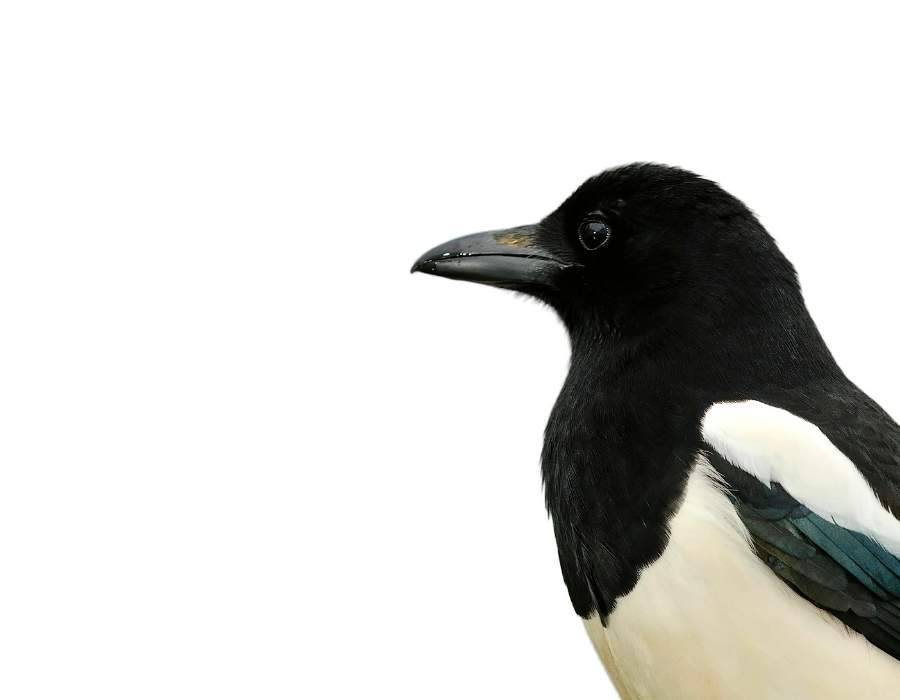
“Writers are magpies, and we collect details about people and we use them for fictional characters.”
– Caroline Leavitt
What does the magpie symbolize?
For many in western societies, the magpie represents an ill-omen. However, many eastern communities considered these courageous flying creatures to be a good and positive omen. Highly associated with magic, witchcraft, divination, and also quite a bit of prophecy, here’s what it means when a magpie flies by.
Persistence
A known threat to farms for their fondness of fresh crops and young poultry, the magpie encourages us to awaken our more defiant side, for it often leads to personal and spiritual progress.
Adored and at the same time abhorred for its stubbornness, not only does this spirit guide push us to try harder, but it also teaches us the value of success.
Intelligence
Admired for being one of the few creatures that can recognize their own reflection, the magpie would often fly into our lives to awaken our spiritual perception.
Known for their ability to mimic sounds and calls, their impressive range of shrills and noises inspires us to speak up and let everyone hear our voices.
Courage
As far as the magpie’s bravery is concerned, there are tales of these charming birds stealing the jewels of a famous queen and many other precious things. This indicates our capacity for fearlessness and determination.
Showing very little to no fear of humans, their presence strengthens us to create and grab hold of opportunities as they come. They would often swoop down to inspire us to stay focused on our goals and keep moving forward (there are plenty of reports about these birds attacking humans).
Confidence
Relatively occupying the same territory their entire life, it doesn’t come as a surprise that the magpie encounters the same threat from predators from time to time. However, its high self-esteem allows it to face these risks with poise and confidence. The magpie symbolism gives us the ability to surpass our uncertainties and helps us enjoy the things that life has to offer.
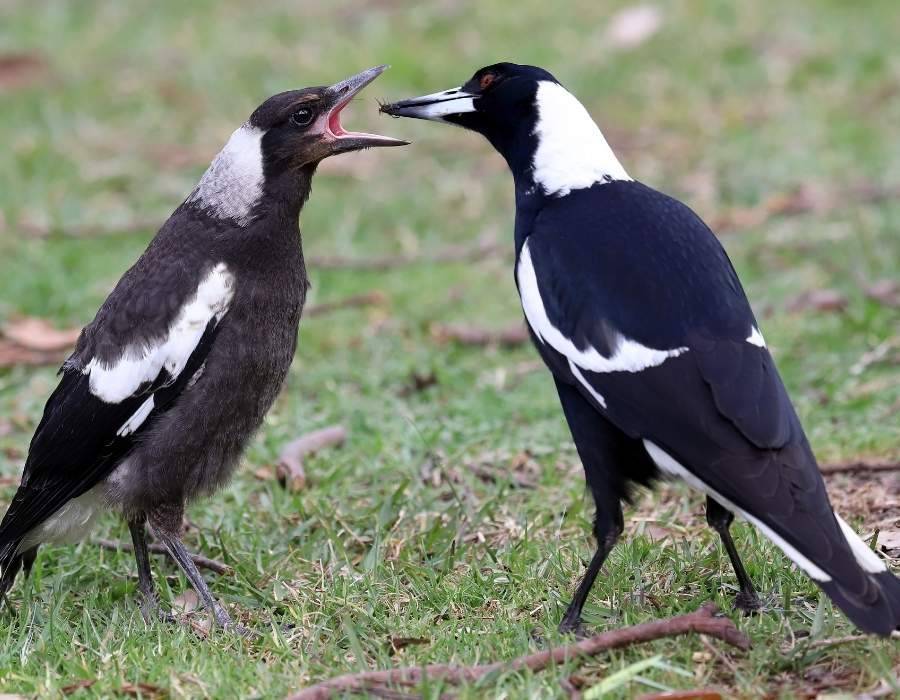
Humility
As the magpie’s boldness may be mistaken for arrogance at times, its presence reminds us of the importance of leading a life of humility and obedience.
By learning how to keep our feet on the ground, the magpie spirit helps magnify our strengths, which ultimately helps us gain spiritual growth and personal excellence.
Strong family bonds
Admired for staying with a single mate for life, the magpie teaches us about the value of developing long-lasting relationships.
A young magpie is known to leave its nest later than most birds, and a young magpie will linger around with its parents for about a year before flying off to find a mate. Such a unique trait tells us how positive connections pave the way for good communication and encourage family members to work as a team in resolving conflicts.
Versatility
Although the magpie is considered a farmer’s most formidable nemesis, these highly adaptable birds teach us to be ready to face different life situations we may find ourselves in.
Omnivorous and likely to feast on both plants and animals, the magpie spirit inspires us to find diverse solutions to our life’s endless difficulties and serves as our motivation to go through our days without limits and boundaries.

Magpie symbolism in different cultures
Human beings are social animals, and they pick up what society has to offer them. Hence, it is not surprising that many of us are superstitious and believe in quite a few things that may sometimes seem far from logical thinking.
Although they are known to be non-migratory birds that rarely travel more than 10 kilometers from where they were hatched, the magpie symbolism has reached many traditions far and wide. Symbolizing intelligence, resourcefulness, and deceit, let’s swoop down and see how the magpie is looked at in different cultures across the world.
Native American culture
Often viewed with superstition, people in the United States once considered it unlucky to kill or even disturb a magpie’s nest. However, their ability to produce a handful of varying sounds, shrills, and calls has made them revered figures of guidance and protection.
A handful of Native American tribes associated the magpie spirit animal with healing, abundance, and good fortune.
Among the Lakota Sioux tribe, they are believed to be a messenger of peace that flies between two warring camps.
The Tlingit people see them as “the bringer of wealth.” They travel into deep forests where other animals can’t go and find food on their own – an act that requires great skill.
To the Navajo Nation, this lone bird is perceived to represent happiness bestowed upon those who enjoy family gatherings.

Much like Native Americans, who give magpies such high reverence, French Canadians traditionally believe it’s bad luck to kill one.
The bird has also been considered unlucky by the various Native American tribes during superstitious times. This was likely due to the association between blackbirds (and red-winged blackbirds) and death, which then transferred to all similar types of birds like crows and magpies (see our article about crow symbolism). It is now believed that killing one will bring bad luck, but if you leave them alone, it could mean something else entirely (such as not disturbing a nest.)
Celtic culture
For the Celts, the magpie symbolism is seen as a symbol of boundless luck and hope.
In Ireland, it was believed that if three magpies crossed your path in order, they were thought to have come for someone you know who would soon die; but if two magpies crossed, followed by one, then this meant someone close to them would be the next to pass away.
Traditionally, the Irish believed that killing or disturbing their habitat brought about a period of adversity and misfortune. This belief has been passed down through generations. Some old wives’ tales suggest that if you kill a magpie, your cattle will die or people may steal from you in retaliation for taking away their luck!
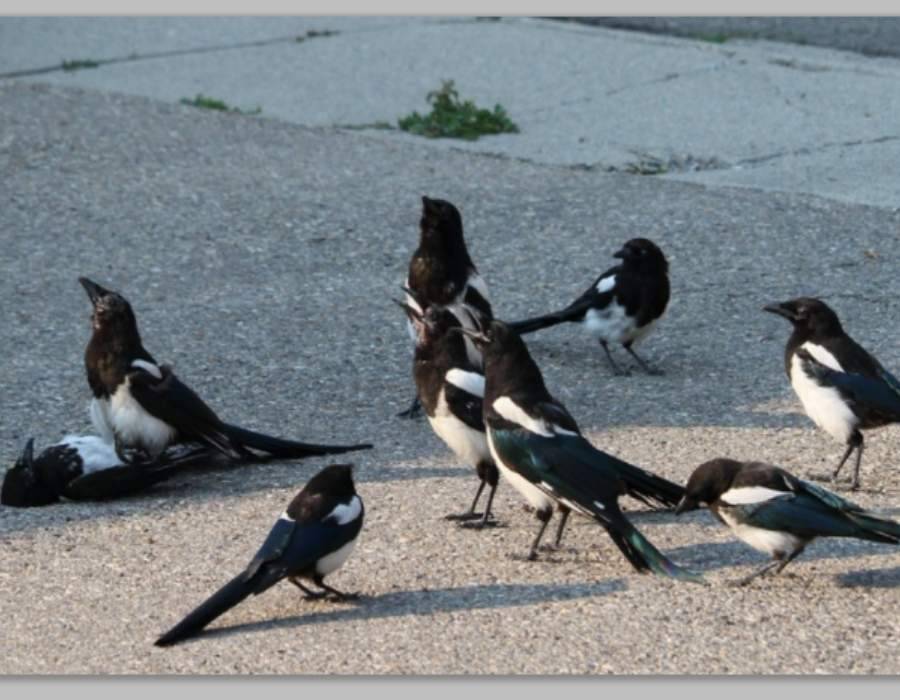
On the other hand, due to its symbolic meaning in Celtic culture (as well as Scandinavian), seeing a nest of these birds can be considered an omen for prosperity – especially if there are more than two eggs (magpies lay blue eggs and some species build mud nests.)
As an old Norse legend has it, the Norse Goddess Skadi’s fondness for black and white plumage made her a favorite of thieves and tricksters.
The Celts believed that the black and white markings of this bird of prey were seen to represent the sexual union.
Regarded as a flying creature that maintains the world’s balance, Scandinavians thought that magpies were sorcerers flying to unholy gatherings, while the nesting magpie was once considered a sign of luck in those countries.
Eastern culture
Along with their strong belief in bird superstitions, various Eastern cultures view the magpie as a symbol of good luck.
Known as “kakawari” in Japan, it was long believed that those who came across the lone magpie were lucky to receive gifts from their friends or encounter an old friend they hadn’t met in years.
In China, the Oriental Magpie is seen as a symbol of happiness and good fortune. They are seen as the reincarnation of ancestors or even an animal companion that has been transformed into their current form. Also, the Chinese believe that if someone spots three magpies, then he will have triple blessings bestowed upon him by heaven.
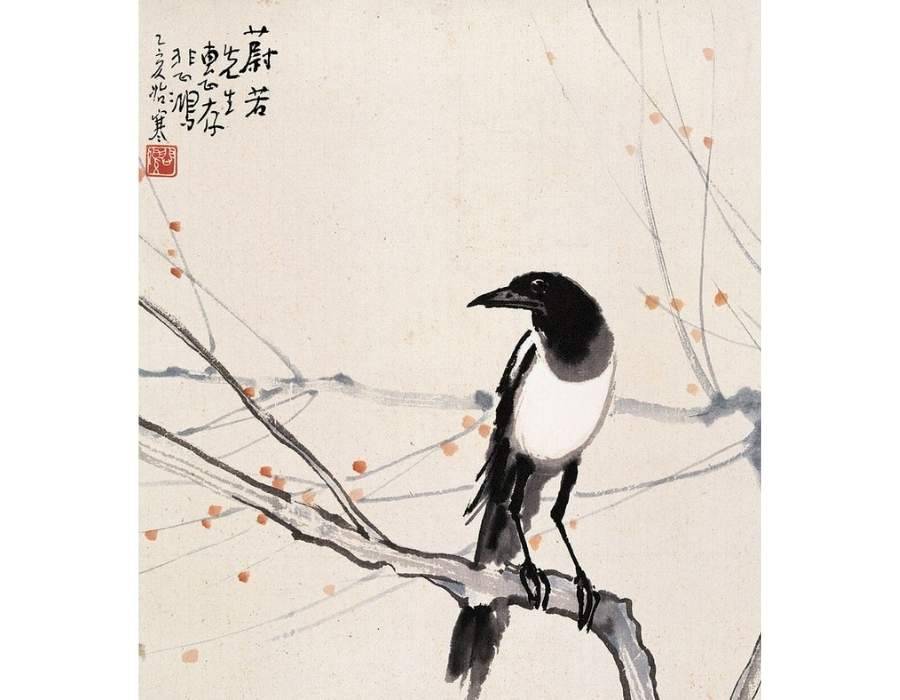
Chosen as the national bird of Korea in 1964, legend has it that magpies once formed a bridge that paved the way for two troubled lovers to make peace and reconcile. Many believe that the two separated nations were hoping that these birds would be instrumental in one day reuniting the North and the South.
Greek and Roman cultures
In ancient Greece, the magpie was a symbol of love and happiness.
The Roman poet Ovid, in his tale entitled Metamorphoses, tells us of a story where the nine daughters of King Pierus were asked to judge a contest between the Pierides and the Muses. After defying and defeating the Muses in a competition of hymns, each of the nine daughters was transformed into a magpie which continues to plead its case through its calls and shrills to this day.
Buddhism
While some would say that the magpie represents abundance because it collects shiny objects like gold coins, it is the bird’s wisdom that has made it a common adornment in countless shrines and temples.
Widely considered in faith as an image of kindness and serenity, these birds are known to represent positive thoughts and inspire us to constantly be ready to extend a helping hand.
As an old folktale reminds us, the magpie was instrumental in ending the feud of two humans, their presence bodes well for the Buddha’s teaching of patience, unselfishness, and compassion.

Christianity
Early Christians saw the magpie as an omen of good fortune, bearing both positive and negative connotations. However, since stories suggest that they were the only birds that didn’t go into mourning at the time of Jesus’ crucifixion, many people began seeing them in a negative light.
The story of the magpie and Jesus’ crucifixion goes: two birds reportedly flew to Jesus’ crucifixion as he was being crucified and perched there. One was a magpie, and the other was a dove. The dove wept for Jesus, but the magpie did not; as a result, magpies were eternally damned in the eyes of Christianity, and thus, the rest of European civilization.
Since its colors easily explain why it is seen as a combination of a raven and a dove, it is believed the magpie symbolism brings balance, stability, and peace of mind.
Several cultures see the magpie as a symbol of good luck and prosperity. It was believed that this bird could swallow the sun’s rays in its beak and carry them away to prevent darkness from conquering light during the winter months.
These birds were often released so they would fly high into the sky with messages attached to their legs, for they had the gift of transcending the heavens.
Magpie superstitions
There is no doubt that there are a handful of lore and superstitions surrounding the magpie.
While some are associated with good luck, their notoriety for stealing objects that are bright and shiny is seen to indicate bad fortune and the occurrence of an unpleasant event.
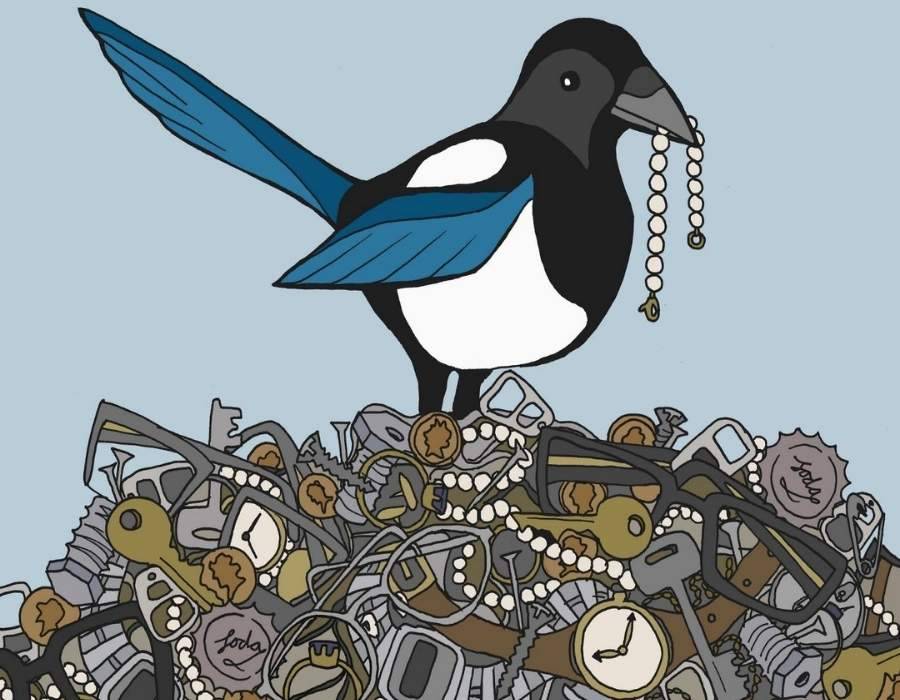
Although they are highly revered in a handful of traditions, these relatively friendly creatures haven’t got the best reputation. La Pie Voleuse, a historical melodrama created by two French playwrights in 1815, tells the story of a servant who was wrongfully accused of stealing silverware from his master when the real thief was his pet magpie.
Moreover, the opera by Gioachino Rossini, “La Gazza Ladra”, is set to the same story, which influenced the way people felt about these flying creatures.
Further, many believe that it has the devil’s blood in its body, and this could be associated with death and bad luck. Much like the raven, it has a habit of scavenging and eating dead animals. This superstition could be the cause of this bird’s being associated with the devil.
While the myth and superstition surrounding the habit of magpies stealing jewels is perhaps exaggerated, this bird’s fascination for treasures simply shows how they are extremely intelligent creatures.
The magpie spirit animal
The magpie symbolism of this spirit animal is often associated with good luck, prosperity, and happiness. This may be because they are seen as harbingers of a family’s fortune or because their nests were once thought to contain treasures.
When we talk about magpies and look at them from a spiritual angle, we have reasons to believe that it is about individuality and creative expression.
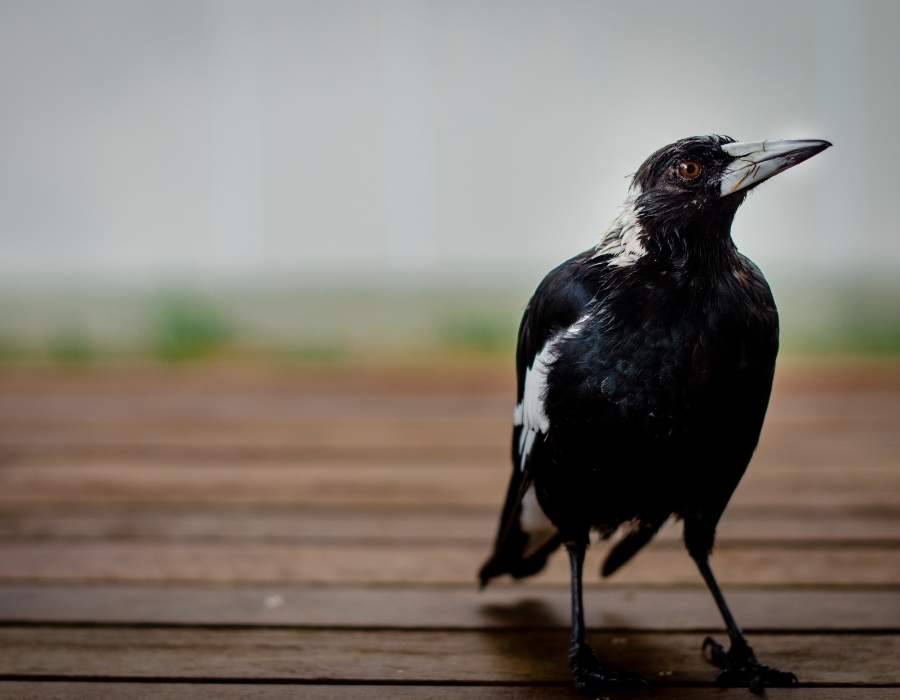
Its colorful character and nature teach us to listen with altered minds and not to listen just for the sake of listening. The magpie symbolism reminds us of the importance of developing good communication between our loved ones and us.
The magpie meaning is a symbol of many things, including joy and abundance. Some believe that the bird’s high-pitched cawing noise foretells rain or other ills to come.
The magpie animal totem
If the magpie is your totem, you are brave and resourceful. You have a deep, honest nature that is often overlooked by others because of the way you can easily adapt to different situations.
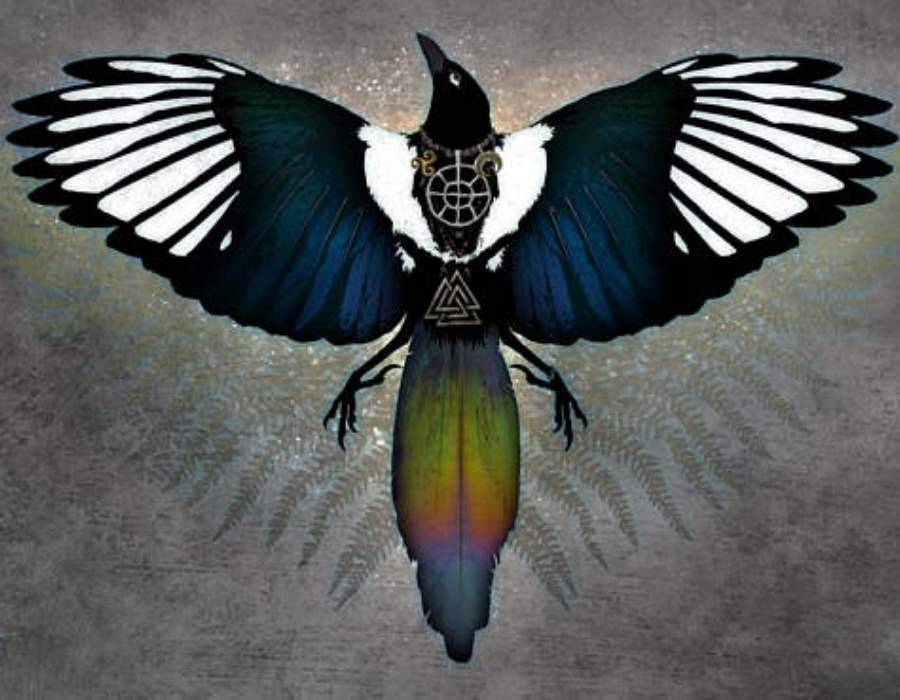
As your totem animal, they help you enjoy being independent. But no matter how much you enjoy your solitude, when the time comes for companionship or love, it is readily available.
Those who are fortunate enough to have this bird totem possess excellent communication skills that allow them to be successful public speakers with a lot of confidence.
Magpie Meanings: From Folklore to Modern Interpretations
The fascination with magpie folklore continues to thrive in contemporary culture, with many people still asking “what does one magpie outside my window mean?” For those experiencing frequent magpie encounters, these distinctive black and white birds often carry powerful spiritual messages. The superstition “one for sorrow, two for joy” remains deeply embedded in modern consciousness, prompting many to anxiously scan for a second magpie when spotting a solitary visitor.
Common Magpie Questions and Seasonal Appearances
Many wonder “is it magpie season?” when these birds become more visible or vocal in their area. Magpies are particularly noticeable during breeding season when their distinctive magpie call sounds become more frequent and aggressive as they protect their young. Unlike some misconceptions, magpies and crows are not the same – though they share the corvid family, magpies display more complex social behaviors and are often considered even more intelligent than their corvid cousins.
Numerical Magpie Encounters and Their Meanings
Beyond the familiar “one for sorrow, two for joy,” people search for meanings behind seeing specific numbers of magpies. Spotting three magpies often symbolizes a major transformation, while four magpies may indicate stability and foundation-building. Five magpies are traditionally associated with silver or financial gain, and six magpies for gold represents abundant prosperity. The saying “seven for a secret never to be told” suggests mysteries and hidden knowledge, while eight magpies signify balance in all aspects of life. Nine magpies, though rare to see together, are considered an extremely fortunate sign representing completion and fulfillment of wishes.
Whether you find magpies fascinating, intimidating, or simply beautiful, understanding their rich symbolic heritage across cultures adds depth to each encounter. Unlike the negative reputation they sometimes receive as pests or aggressive birds, magpies are actually highly intelligent, community-minded creatures with complex emotional lives – much like the multifaceted symbolism they’ve inspired throughout human history.
The magpie power animal
With the magpie as your power animal, you develop a balance in your mind as well as a natural ability to see and understand both sides of any situation.
You are not afraid to explore what others may find frightening, and you feel compassion for all living beings.
Your empathy has given you great insight into human behavior, making the magpie symbolism perfect for careers in counseling and psychology, where they can help people gain a deeper understanding of themselves.
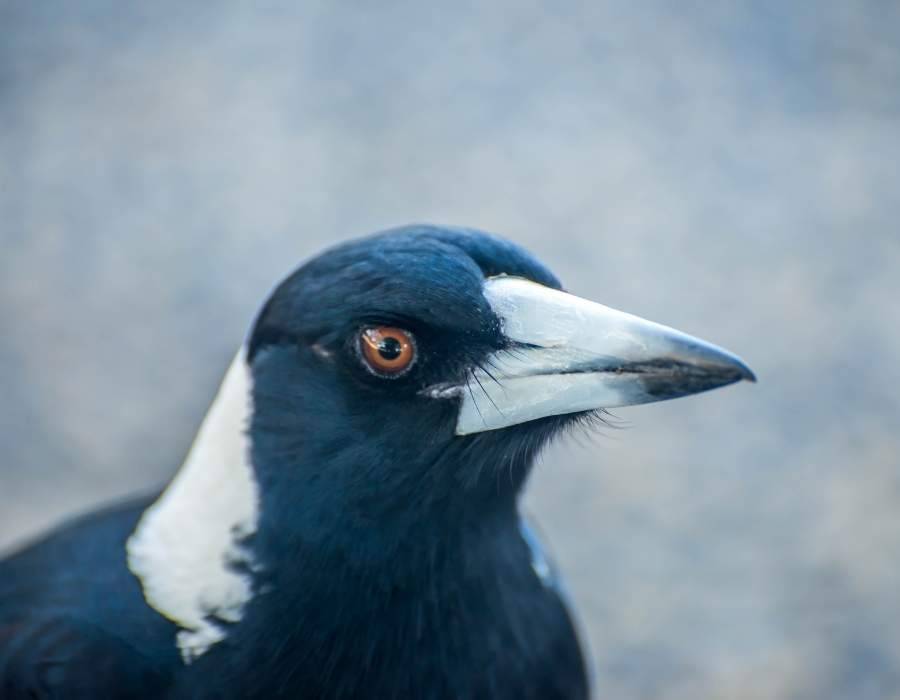
What does it mean when you see magpies?
Along with its many calls and shrills, the magpie’s meaning stands for communication and the creation of bridges. However, it could also relate to deception and trickery amongst many people in some societies. Hence, there are different ways in which the magpie is looked at, and it depends on the society and the country to which one belongs.
While there are quite a few superstitions and beliefs surrounding the appearance of the magpie, there is no doubt that the most renowned is the one from the United Kingdom. According to this superstition, seeing a lone magpie brings difficulties and bad luck.
Another popular belief states that if two magpies are around, it could mean good luck and the arrival of a more prosperous time.
There is also an old nursery rhyme penned back in 1777. It talks about a single magpie denoting sorrow, two denoting mirth, three for a funeral, and perhaps four denoting birth.
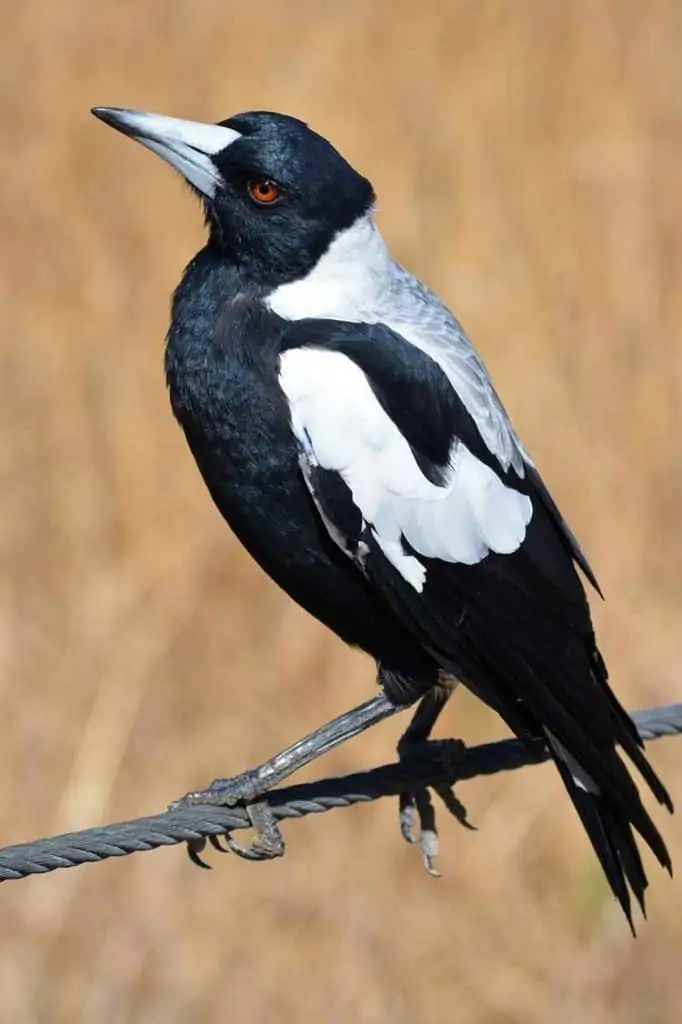
This famous verse has gone through many changes to make it in line with modern times and modern beliefs:
“One for sorrow, Two for joy, Three for a girl, Four for a boy, Five for silver, Six for gold, Seven for a secret never to be told”
– Magpie Nursery Rhyme
Does a magpie symbolize good luck?
While some associate the magpie with hardships and bad omens, many beliefs view them as a sign of good fortune. Magpie symbolism has different meanings and connotations, and most of them point to good luck.
For example, there is a common belief that seeing seven magpies could mean a good omen and could bring in some good news.
For many, it may also be suggestive of the fact that it could be the right time to move ahead with one’s plans.
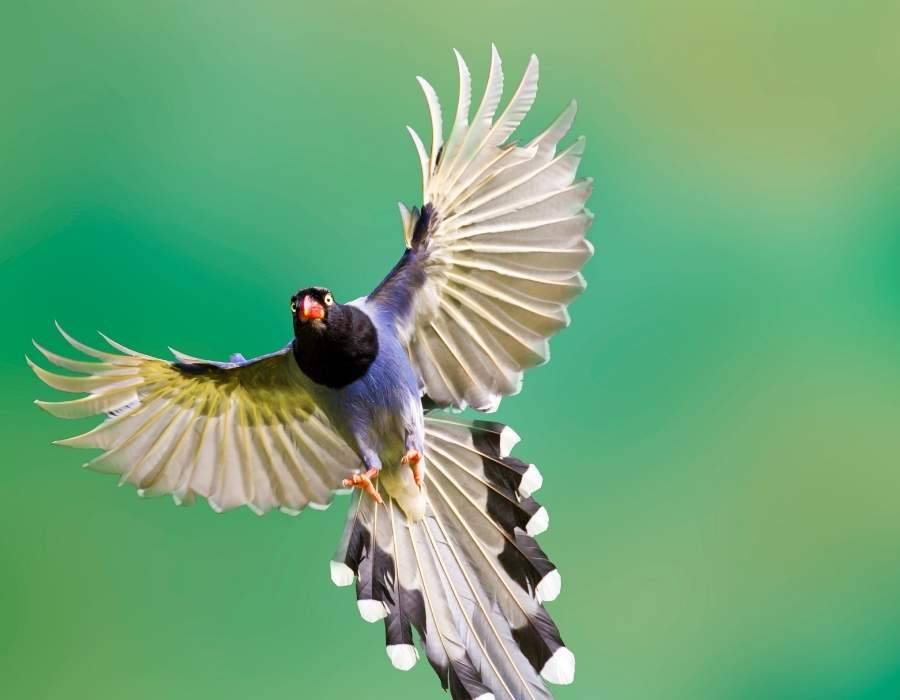
While the presence of eight magpies suggests a period of good luck, it could also mean that there could be some waiting period before a certain task is completed. This belief may also mean that you should not bite off more than what you can chew. Your plans should be of the right size, and they should be doable and implementable.
Many believe that when a person sees nine magpies at a time, it could mean that love is coming into his or her life.
For those who may have lost their love lives, the sighting of nine magpies could mean that their love lives may return and good things may be in store for them.
Magpie Encounters: Spiritual Messages and Numerical Significance
Encountering a magpie is never just a random occurrence according to folklore traditions worldwide. When you spot one magpie outside your window, many believe it carries specific spiritual messages meant just for you. These distinctive black and white birds with their characteristic magpie call sound serve as messengers between worlds in numerous cultures. Their complex vocalizations—ranging from melodic warbles to sharp, insistent calls—were traditionally interpreted as communications from the spirit realm, with different call patterns signifying different messages.
The Numerical Significance of Magpie Sightings
Beyond the familiar “one for sorrow, two for joy,” the counting rhyme extends further with deeper meanings. Three magpies appearing together signify transformation and impending change, while four magpies mean a celebration or important announcement may be forthcoming. Five magpies for silver represents financial gain or opportunity, while six magpies for gold suggests profound abundance and prosperity in all areas of life. The mysterious seven magpies—”seven for a secret never to be told”—relates to hidden knowledge or mysteries that will soon be revealed to you. Eight magpies point to completion of a cycle and achievement of balance, while nine magpies are thought to bring the rarest and most powerful blessing of perfect fulfillment.
Magpies vs. Crows: Distinctive Intelligence and Behavior
While people often wonder if magpies and crows are the same, they’re distinctly different corvids with unique characteristics. Magpies are widely considered to be as smart as crows or potentially even more intelligent by some measures. They’re among the few animals capable of self-recognition in mirrors, can remember human faces for years, and demonstrate remarkable problem-solving abilities. Unlike the common misconception that magpies are aggressive year-round, they typically only display territorial behavior during breeding season. Their intelligence manifests differently than crows—magpies are more socially complex, forming intricate community structures and engaging in elaborate mourning rituals when a member of their group dies.
Is It Magpie Season? Understanding Seasonal Behaviors
Many people ask “is it magpie season?” when these birds become more visible or vocal. Magpies don’t have a migration season, but their behavior changes dramatically during breeding periods, typically from August to October in the Southern Hemisphere and April to July in the Northern Hemisphere. During these times, they may become protective of nesting areas, leading to the swooping behavior that has given them a reputation for being dangerous. However, studies show only about 10% of magpies ever swoop, and they’re usually males defending nests. Understanding these seasonal patterns helps explain why magpie encounters might seem more frequent or significant during certain times of year, adding another layer to their spiritual and cultural significance across traditions worldwide.
Conclusion
Though some negative traits and superstitions surround this bird, the magpie is a beautiful creature both in looks and intelligence. Countless beliefs have been passed down to us over generations. The magpie spirit comes to teach us how to take things lightly and make the best of the opportunities that life offers.
Sporting plumage with a distinct black and white color, they swoop down to remind us that our heavenly guides are always at our back for spiritual encouragement and protection.
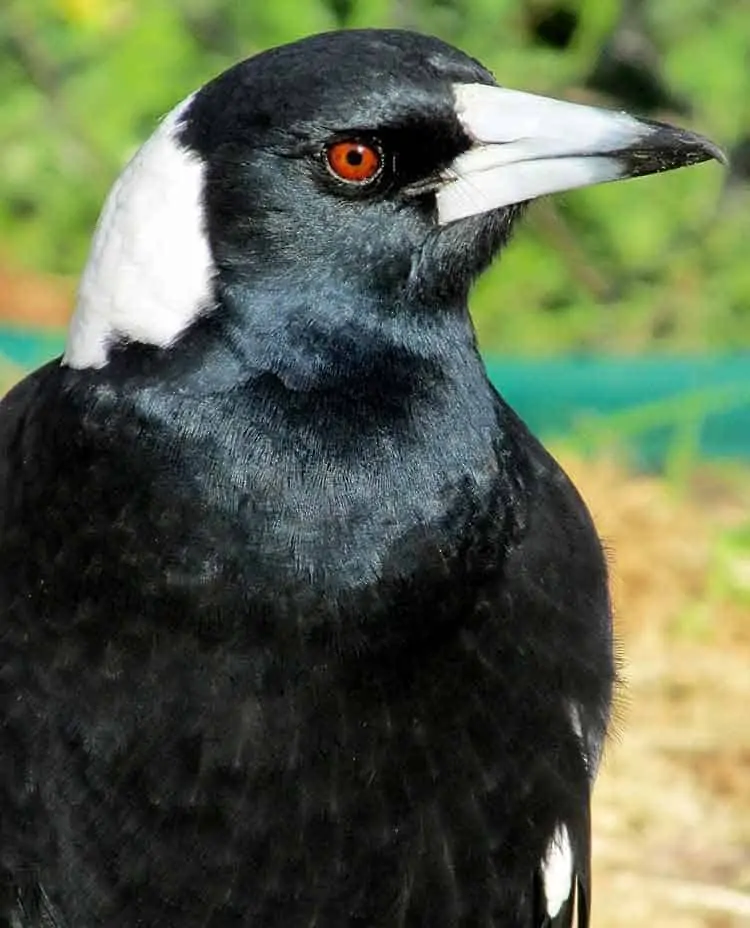
FAQs
Are magpies a good omen?
Although highly associated with crows and ravens, the magpie is seen to bring abundance and good fortune. While a well-loved nursery rhyme tells us that seeing a lone magpie brings sorrow, it also reminds us that coming across a large group of this bird can bring happiness and wealth.
“One for sorrow, Two for joy, Three for a girl, Four for a boy, Five for silver, Six for gold, Seven for a secret never to be told”
Are magpies messengers?
Several Native American tribes also saw their feathers as a sign of fearlessness and considered them sacred messengers and guardians. Considered “birds of joy” by some, their appearance indicates the arrival of positive news and is a good omen. Not only do they tell us that prosperous times are ahead, but they also give us the wisdom to make the best life choices.
What should I do when I see a magpie?
Tradition tells us to greet them with a “good morning” to ward off adversity and invite success. Since a lone magpie is believed to bring misfortune, getting on its good side by acknowledging its presence and showing respect is perceived to deflect unfortunate events.
Are magpies dangerous?
Magpies aren’t typically dangerous, though they may swoop during breeding season to protect their young. This defensive behavior is temporary and targeted. Most magpies are actually shy around humans unless they feel threatened or have become accustomed to people through feeding.
Are magpies as smart as crows?
Magpies are considered equally intelligent or even smarter than crows. They can recognize their reflection in mirrors, plan for the future, use tools, and remember human faces for years. Their problem-solving abilities and social intelligence place them among the smartest birds in the world.
Are magpies bad luck?
Magpies have contradictory reputations across cultures. In Western folklore, a single magpie is often considered unlucky (“one for sorrow”), while in Eastern traditions, particularly Chinese culture, magpies symbolize good fortune and happiness. The perception varies greatly depending on cultural background.
What is the meaning of seeing two magpies?
According to the traditional rhyme, “two for joy” suggests seeing a pair of magpies brings happiness and good fortune. This positive symbolism relates to magpies’ tendency to mate for life, representing strong relationships, balance, and harmonious partnerships in many interpretive traditions.
Are magpies attracted to shiny things?
Despite popular belief, scientific studies have found that magpies aren’t particularly attracted to shiny objects. They’re actually naturally cautious of unfamiliar items. The myth likely developed from occasional instances when curious magpies investigated reflective objects and from their intelligence in examining interesting items.
What does the magpie call sound represent?
The distinctive warbling call of magpies is primarily a territorial announcement or group communication. Their complex vocalizations can indicate warnings, greetings, or mating calls. Many cultures interpret these sounds as omens or messages, believing specific calls predict weather changes or significant events.
What is the meaning of 7 for a secret never to be told?
This line from the magpie counting rhyme suggests that seeing seven magpies relates to secrets and hidden knowledge. It implies encountering mysteries that should remain undisclosed. Some interpretations connect this to magpies’ intelligence and the bird’s mythological association with gathering hidden information.
Are magpies intelligent?
Yes, magpies are extremely intelligent birds. They can recognize themselves in mirrors, remember human faces for years, solve complex problems, and have sophisticated social structures. Their cognitive abilities rank among the highest in the bird world, comparable to those of primates.
What does seeing 3 magpies mean?
According to folklore, seeing three magpies signifies an upcoming transformation or significant change in your life. This extends the traditional counting rhyme beyond “one for sorrow, two for joy” and suggests positive developments and new beginnings are on the horizon.
Are magpies and crows the same?
No, magpies and crows are different birds, though both belong to the corvid family. Magpies have distinctive black and white plumage with iridescent blue-green feathers, while crows are primarily black. Magpies also have longer tails and different social structures than crows.
What does 5 magpies for silver mean?
In the traditional counting rhyme, “five magpies for silver” indicates an approaching financial gain or opportunity. This superstition suggests that seeing five magpies together is a sign of monetary benefits, business success, or unexpected financial resources coming your way.
Are magpies good luck?
Magpies’ association with luck varies across cultures. In Eastern traditions, particularly Chinese folklore, magpies symbolize good fortune and happiness. However, in Western traditions, a single magpie often represents bad luck, while multiple magpies generally signify positive outcomes and blessings.
What is the meaning of “seven for a secret never to be told”?
This line from the magpie counting rhyme suggests that seeing seven magpies together indicates hidden knowledge or mysteries that will be revealed to you. It’s associated with discovering secrets, gaining insight into confidential matters, or receiving information that has been previously concealed.
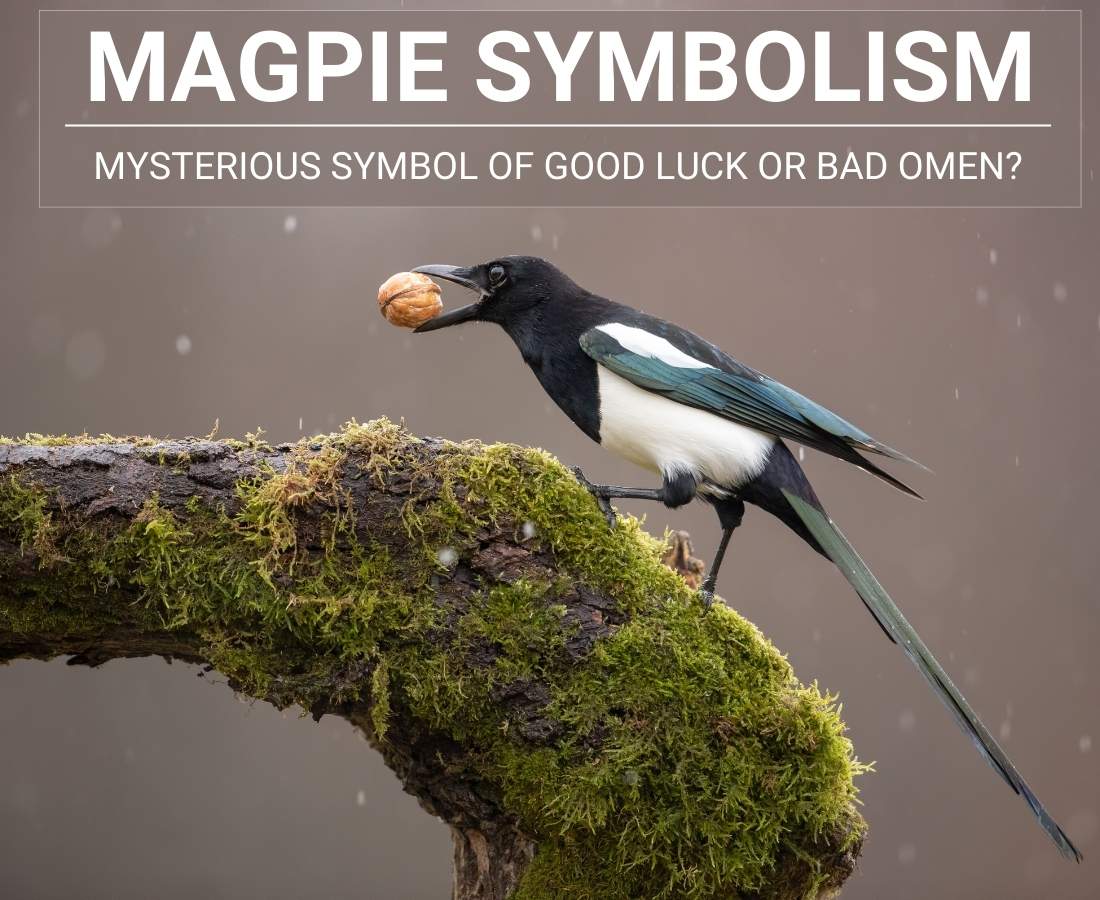

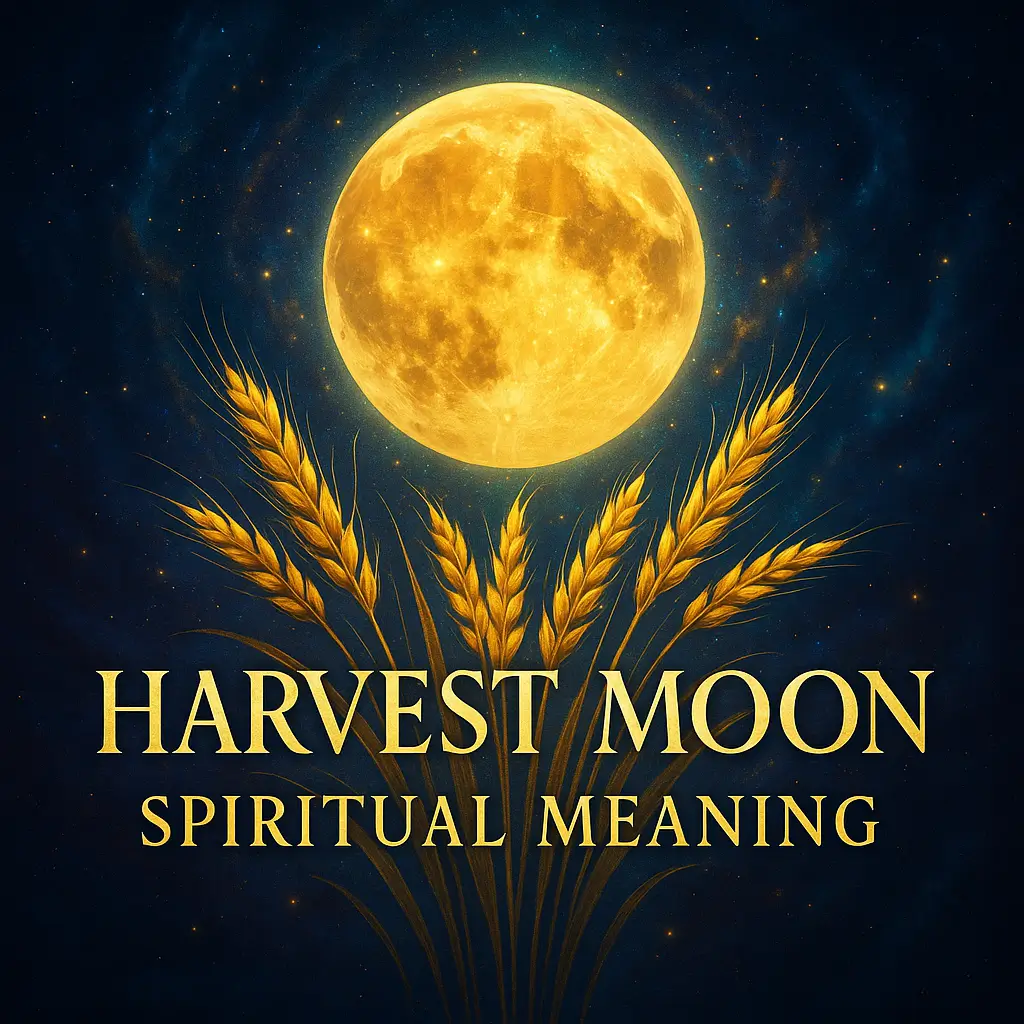

I found a very sick magpie in my garden yesterday – it was missing its tail feathers and its head was hanging to one side. It wouldn’t let me near it to see if I could help, so I left a dish of water. I kept checking on it but it was getting weaker, still it wouldn’t let me help. This morning I found it underneath my car, it had died. I scooped it up and put it in a patch of woodland next to my house, returned it to nature. But I can’t help feeling so sad that I couldn’t save it….